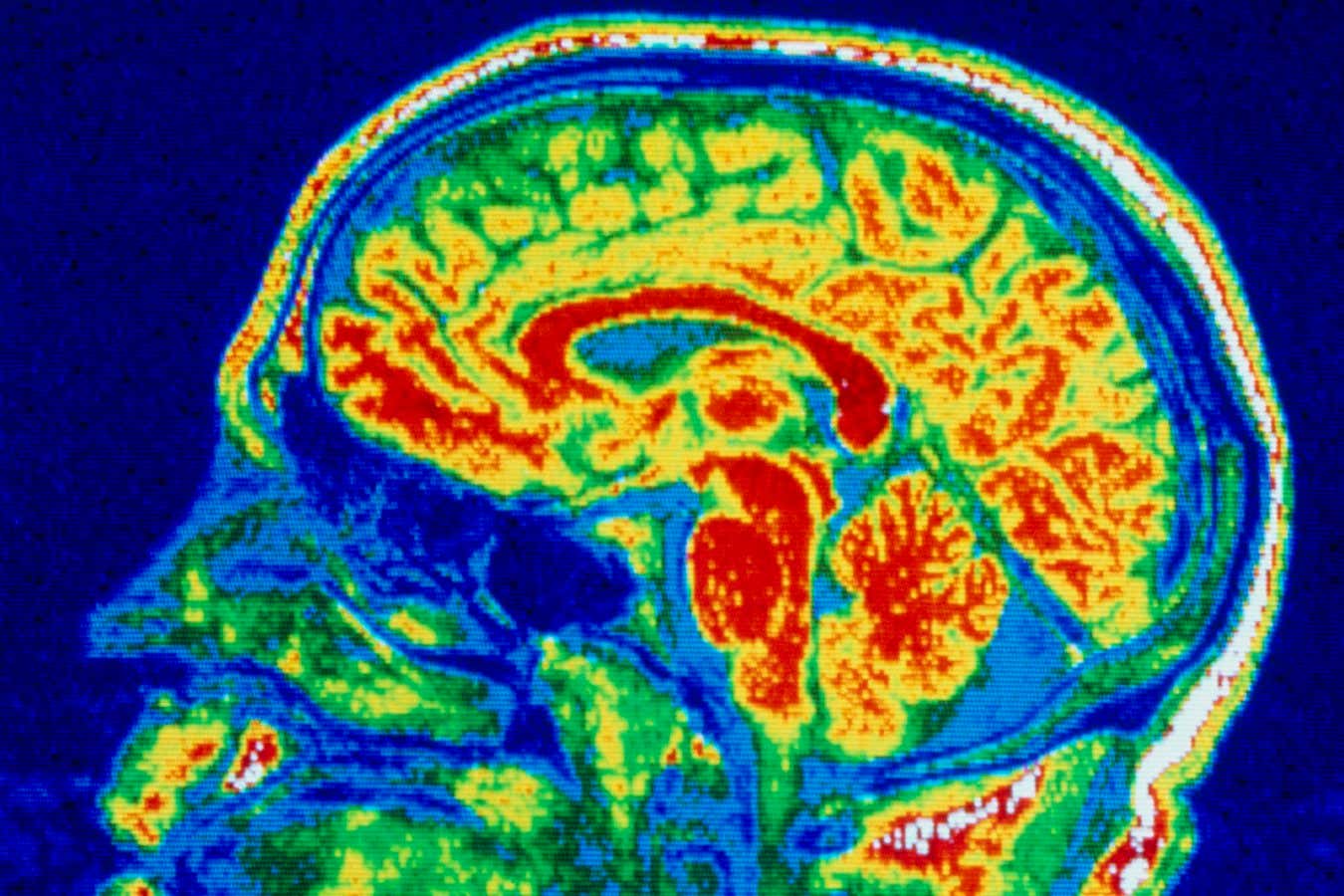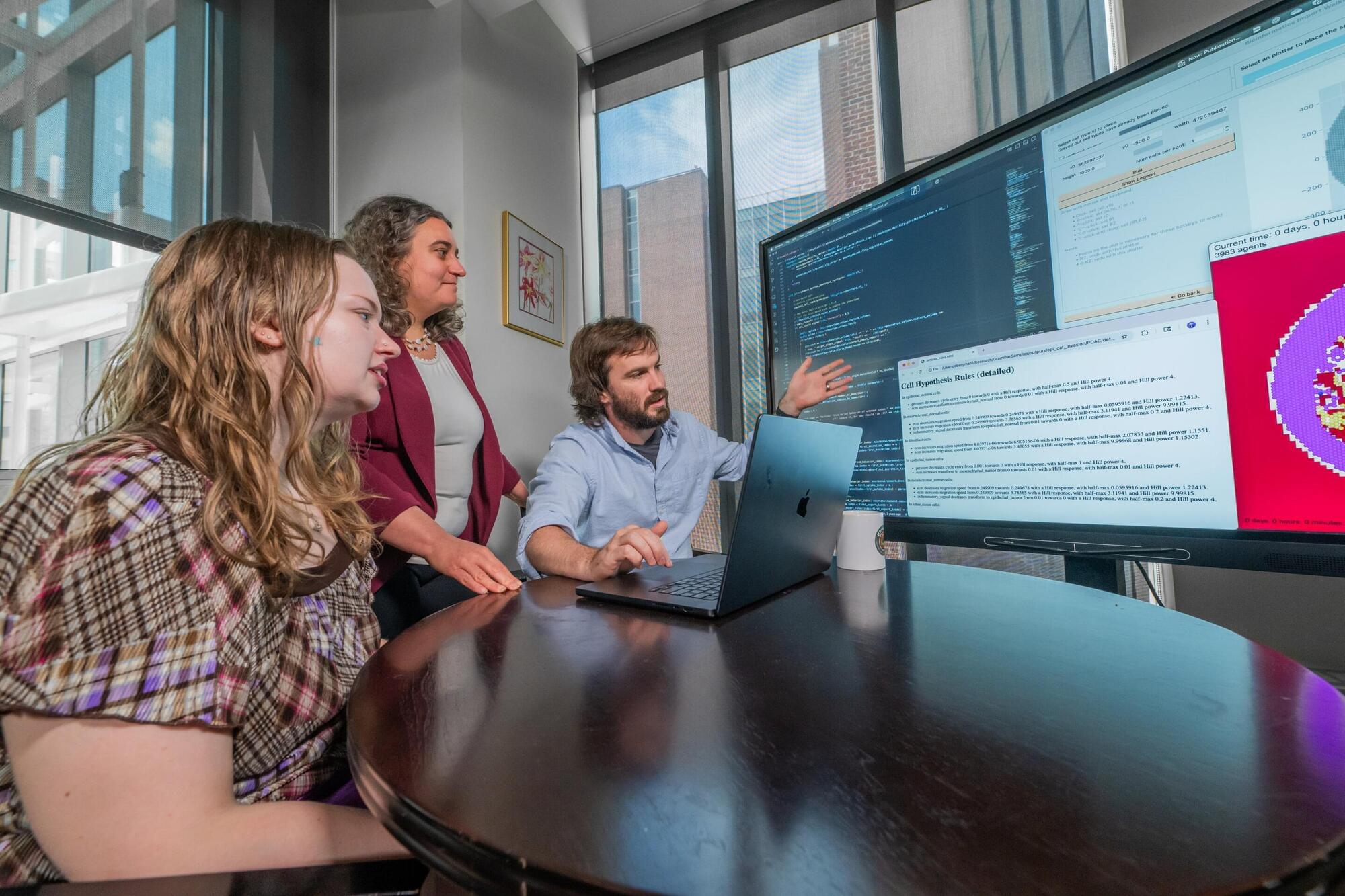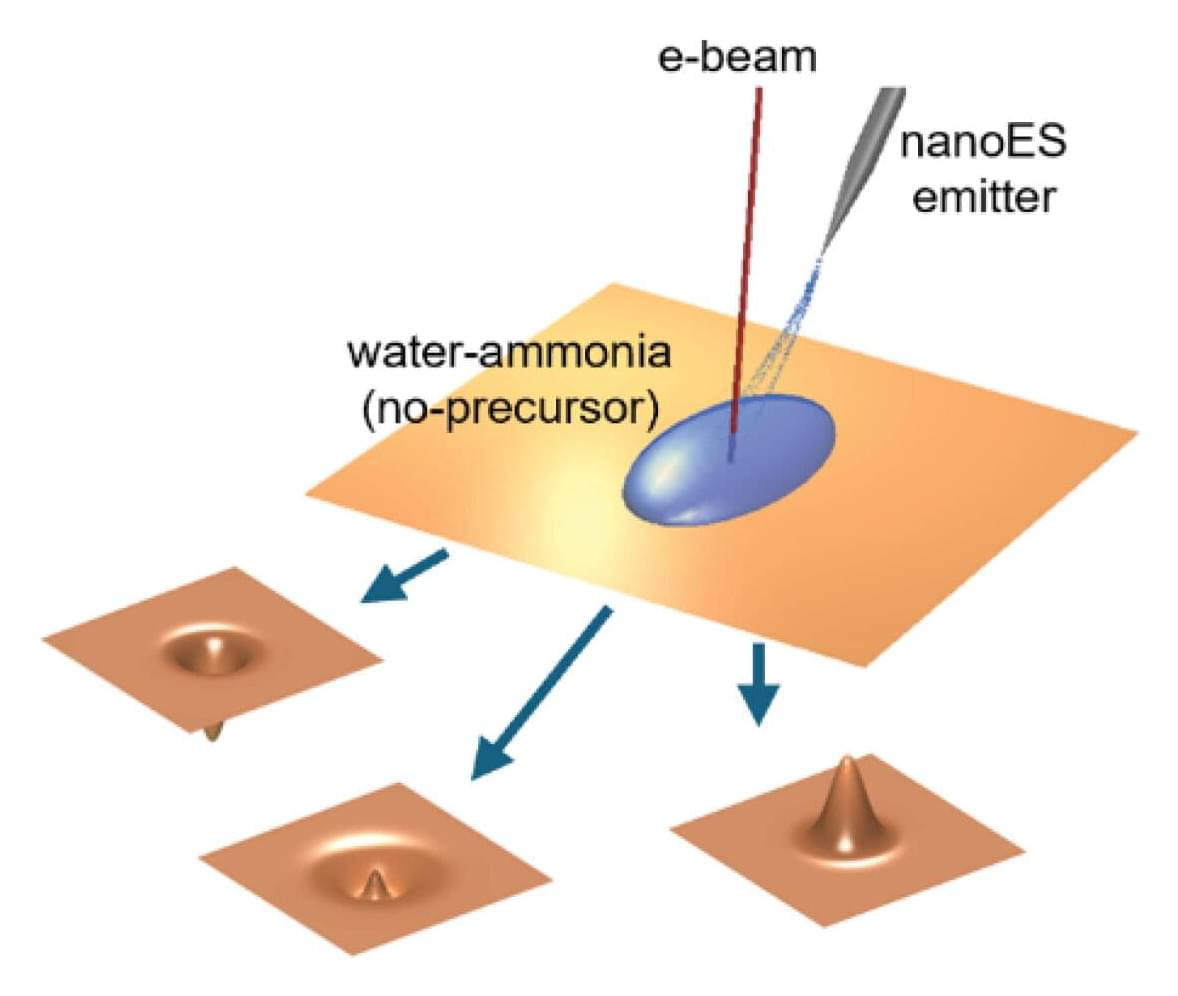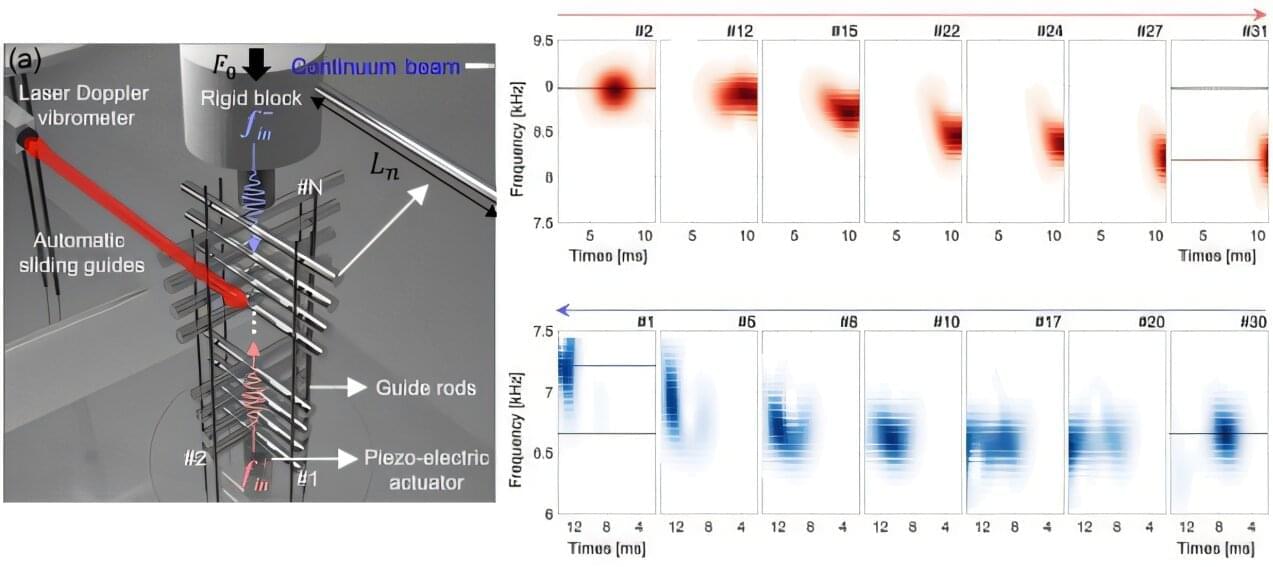In children with anorexia nervosa or other restrictive eating disorders, changes in the brain’s outer layer don’t seem to be due to lack of nutrition alone – and some mirror those seen in other neurological conditions



Topological materials are a class of materials that exhibit unique electronic properties at their boundary (surface in 3D materials; edge in 2D materials) that are robust against imperfections or disturbances and are markedly different from their bulk properties. In other words, these materials could be insulators (i.e., resisting the flow of electrons or heat), and yet be conducting at their boundary (i.e., allowing electrons or heat to easily flow through them).
Could Meta be on the verge of transforming how we interact with our digital devices? If the company’s latest innovation takes off, we might soon be controlling our computers, cell phones and tablets with a simple flick of the wrist.
Researchers at Meta’s Reality Labs division have unveiled an experimental wristband that translates hand gestures and subtle finger movements into commands that interact with a computer. This allows a user to push a cursor around a screen or open an app without needing a mouse, touchscreen or keyboard. The technology can even transcribe handwriting in the air into text (currently at a speed of 20.9 words per minute).
In a paper published in Nature, the team describes how its sEMG-RD (surface electromyography research) works. The wristband uses a technique called electromyography to pick up electrical signals when the brain tells the hand to perform an action. It then converts those signals into commands that control a connected device, such as your phone.

“God does not play dice.” This famous remark by Albert Einstein critiqued the probabilistic nature of quantum mechanics. Paradoxically, his theory of relativity has become an essential tool for understanding the behavior of electrons, the primary subjects of quantum mechanics.
Electrons are so minuscule that their behavior must be analyzed through quantum mechanics, yet they also move at speeds that require relativistic considerations. Due to the fundamentally different starting points of these two theories, achieving a unified, consistent description has posed significant challenges.
Now, a groundbreaking study published in Physical Review Letters offers a novel approach that bridges this divide, potentially reshaping the way we understand electron dynamics in solids.

The Large Hadron Collider (LHC) is tough on electronics. Situated inside a 17-mile-long tunnel that runs in a circle under the border between Switzerland and France, this massive scientific instrument accelerates particles close to the speed of light before smashing them together. The collisions yield tiny maelstroms of particles and energy that hint at answers to fundamental questions about the building blocks of matter.
Those collisions produce an enormous amount of data—and enough radiation to scramble the bits and logic inside almost any piece of electronic equipment.
That presents a challenge to CERN’s physicists as they attempt to probe deeper into the mysteries of the Higgs boson and other fundamental particles. Off-the-shelf components simply can’t survive the harsh conditions inside the accelerator, and the market for radiation-resistant circuits is too small to entice investment from commercial chip manufacturers.

In the same vein as weather forecast models that predict developing storms, researchers have now developed a method to predict the cell activity in tissues over time. The new software combines genomics technologies with computational modeling to predict cell changes in behavior, such as communication between cells that could cause cancer cells to flourish.

Creating complex structures at the tiniest scales has long been a challenge for engineers. But new research from Georgia Tech shows how electron beams, already widely used in imaging and fabrication, can also be used as ultra-precise tools to both carve and build structures out of materials like copper.
The research group of Professor Andrei Fedorov at the George W. Woodruff School of Mechanical Engineering has discovered a technique that uses focused electron beams in a liquid environment to either remove or deposit copper, depending entirely on the surrounding chemistry.
By tuning the amount of ammonia in the solution, the researchers were able to control whether the beam etched away the material or deposited it, effectively allowing 3D sculpting at the atomic level.

A research team in Korea has experimentally demonstrated, for the first time in the world, a nonlinear wave phenomenon that changes its frequency—either rising or falling—depending on which direction the waves come from.
Much like Janus, the Roman god with two faces looking in opposite directions, the system exhibits different responses depending on the direction of the incoming wave. This groundbreaking work opens new horizons for technologies ranging from medical ultrasound imaging to advanced noise control.
The joint research team, led by Professor Junsuk Rho of POSTECH’s Departments of Mechanical Engineering, Chemical Engineering, Electrical Engineering, and the Graduate School of Convergence Science and Technology, along with Dr. Yeongtae Jang, Ph.D. candidate Beomseok Oh, and Professor Eunho Kim of Jeonbuk National University, has experimentally demonstrated a phenomenon of bidirectional asymmetric frequency conversion within a granular phononic crystal system.

One of ANSTO’s advanced imaging instruments Dingo now delivers a rare fusion of simulation and radiobiology, becoming a launchpad for an innovative neutron therapy innovation.
This unique scientific capability comprises a single research platform for high-fidelity simulation, real-time dosimetry, and biological response data—all from a neutron beam instrument.
Two new papers published in Scientific Reports report how ANSTO researchers have adapted neutron tomography into a fully integrated testbed for neutron capture therapy research. The platform allows scientists to model conditions, plan experiments, and irradiate live cells, all within a validated, operational system.
